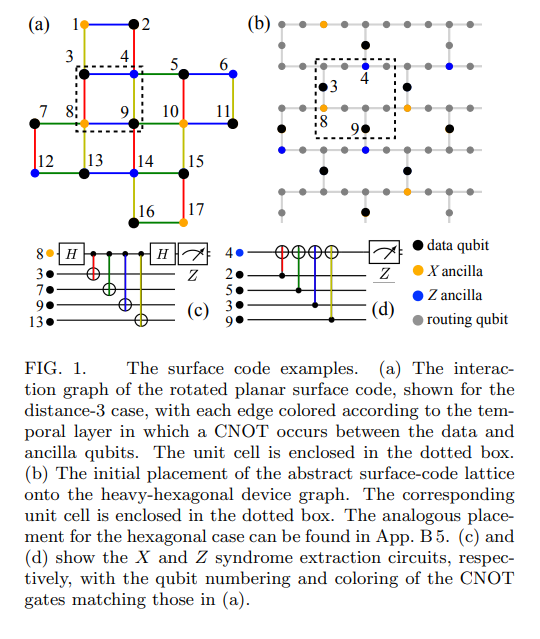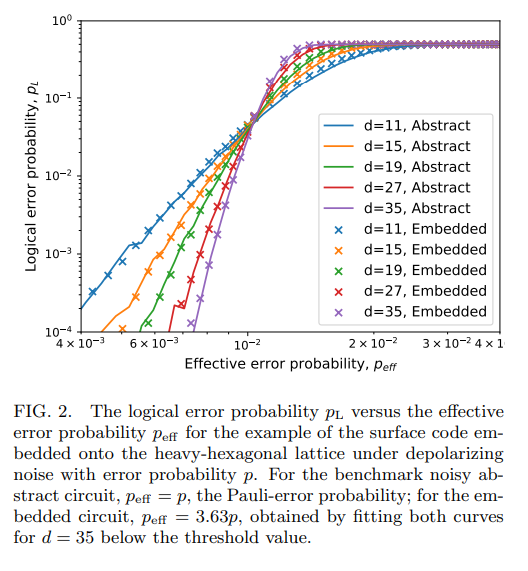Fault-tolerant embedding of quantum circuits on hardware architectures via swap gates
2024-06-24 09:51
1089 浏览
In near-term quantum computing devices, connectivity between qubits remain limited by architectural constraints. A computational circuit with given connectivity requirements necessary for
multi-qubit gates have to be embedded within physical hardware with fixed connectivity. Longdistance gates have to be done by first routing the relevant qubits together. The simplest routing
strategy involves the use of swap gates to swap the information carried by two unconnected qubits to
connected ones. Ideal swap gates just permute the qubits; real swap gates, however, have the added
possibilities of causing simultaneous errors on the qubits involved and spreading errors across the
circuit. A general swap scheme thus changes the error-propagation properties of a circuit, including
those necessary for fault-tolerant functioning of a circuit. Here, we present a simple strategy to
design the swap scheme needed to embed an abstract circuit onto a physical hardware with constrained connectivity, in a manner that preserves the fault-tolerant properties of the abstract circuit.
The embedded circuit will, of course, be noisier, compared to a native implementation of the abstract circuit, but we show in the examples of embedding surface codes on heavy-hexagonal and
hexagonal lattices that the deterioration is not severe. This then offers a straightforward solution
to implementing circuits with fault-tolerance properties on current hardware.




Article: https://arxiv.org/abs/2406.17044
